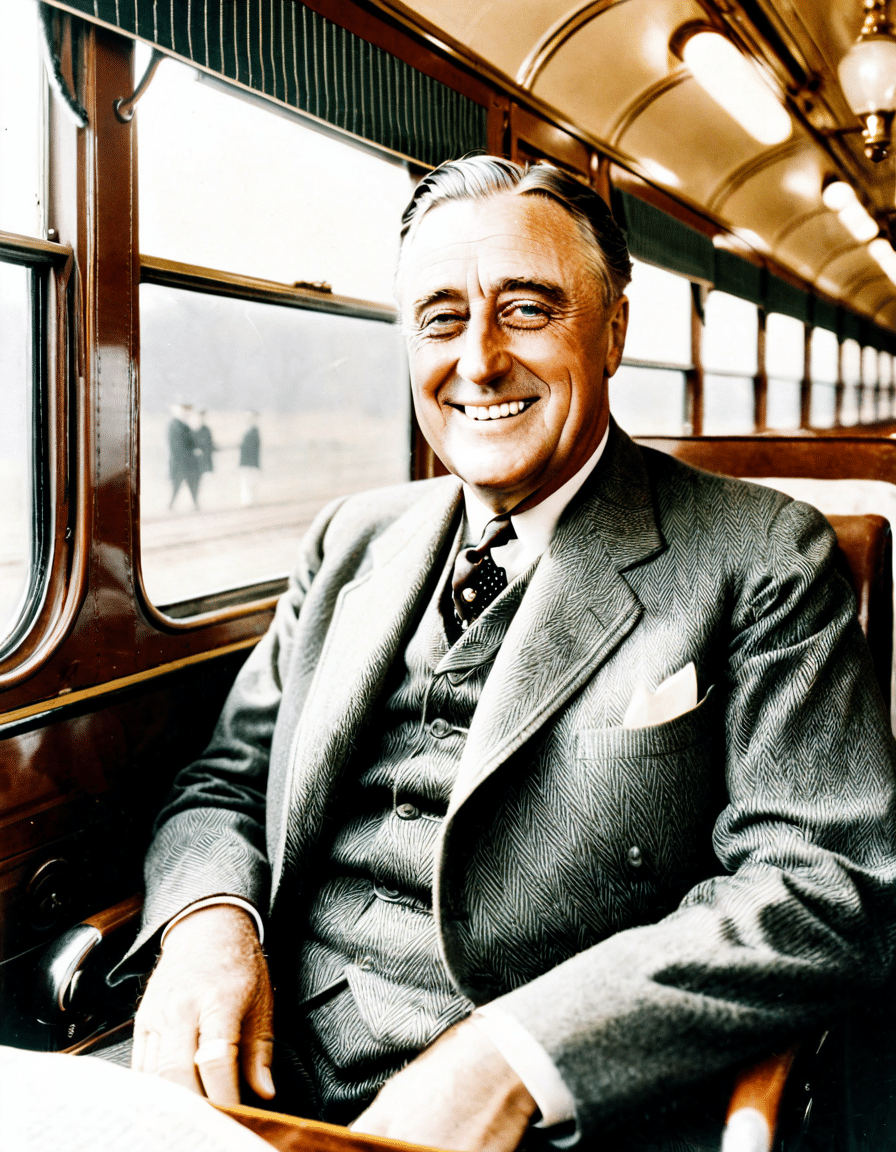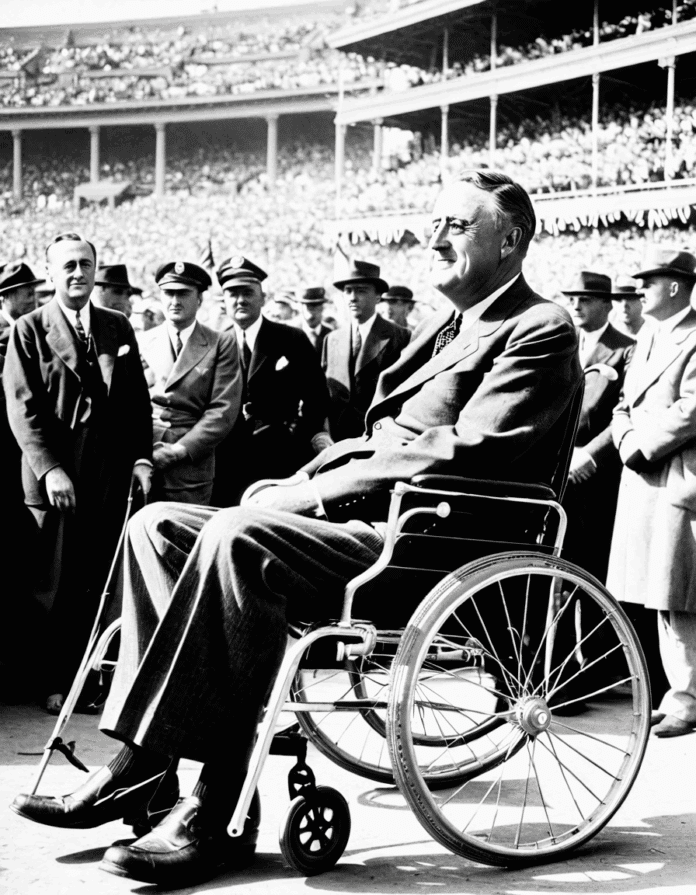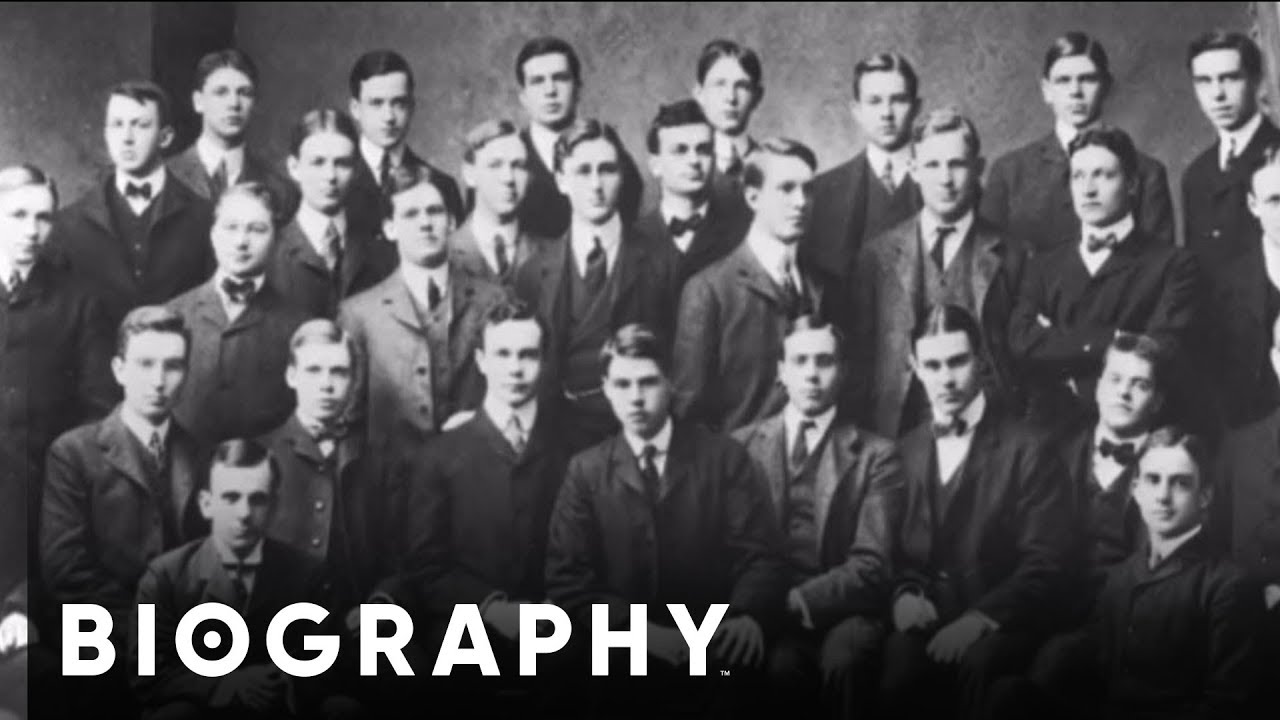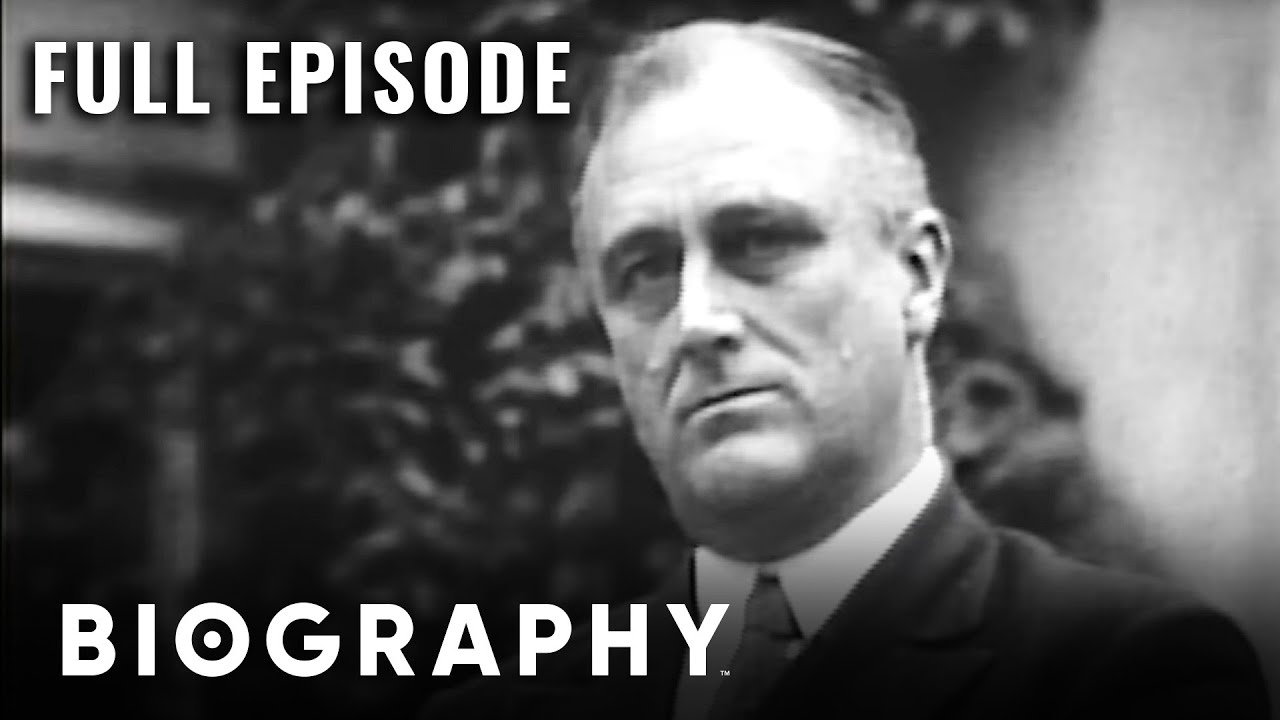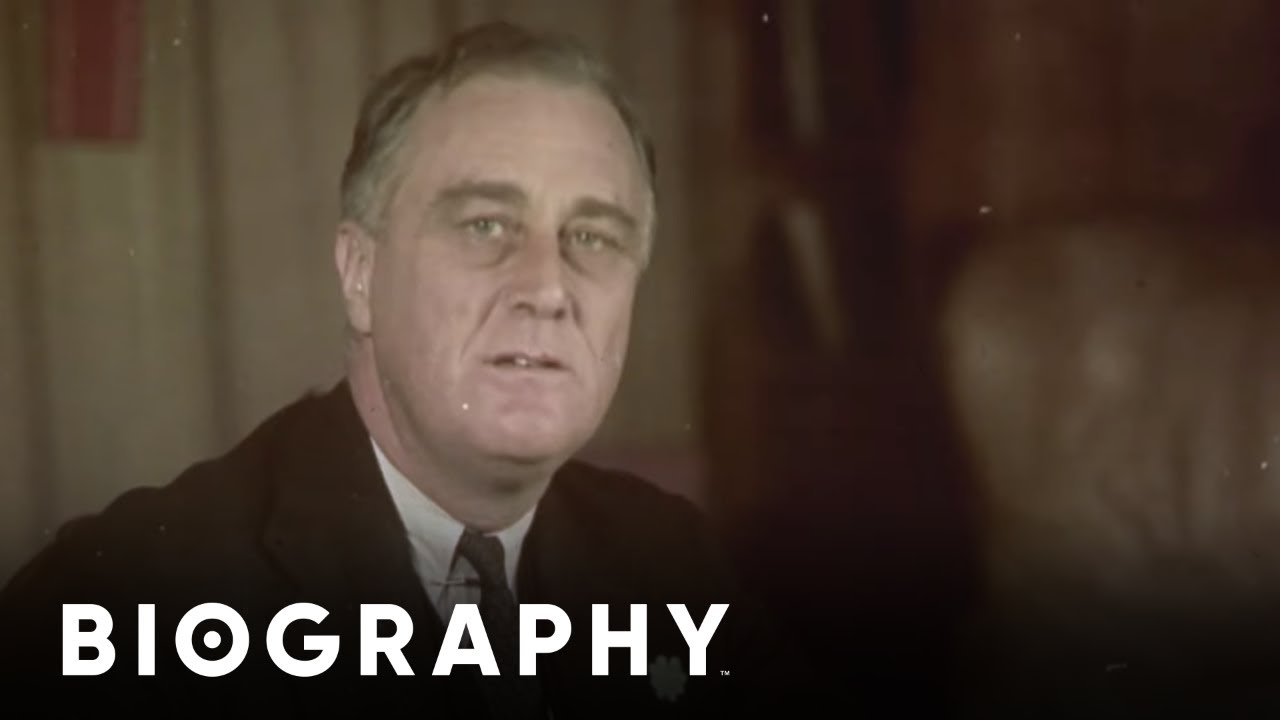Franklin D. Roosevelt (FDR) holds a special place in American history as a bold leader who faced some of the toughest crises the nation has ever encountered. Whether it was steering the ship through the turbulent waters of the Great Depression or rallying the country during World War II, FDR utilized innovative strategies that transformed the relationship between the government and its citizens. His proactive techniques not only shaped America’s immediate responses but also left a long-lasting legacy that influences contemporary political landscapes. So, let’s dive into seven ways Franklin D. Roosevelt shaped America’s response to crises that demand our attention even today!
## Franklin D Roosevelt: A Bold Leader During Crisis
When FDR stepped into the Oval Office, the Great Depression was in full swing. His immediate response? The New Deal—a groundbreaking package of social and economic reforms designed to revitalize the faltering economy. This ambitious initiative focused on government intervention, creating jobs, and stimulating demand, which effectively put food on Americans’ tables and money in their pockets.
Take the Civilian Conservation Corps (CCC) for example. This program created millions of jobs, while also enhancing public lands through conservation projects. FDR’s approach laid the groundwork for social welfare systems, and principles like these inspired future leaders, such as Lyndon B. Johnson, when he rolled out his Great Society programs.
Moreover, by marrying economic theory with actionable programs, FDR proved that bold governmental action could indeed drive recovery. His innovative policies paved the way for programs like Social Security, which now protects millions of Americans.

2. Effective Communication: The Fireside Chats
FDR wasn’t just a policy wonk; he was a master communicator. His famous “Fireside Chats” revolutionized how leaders interacted with the public. Using the power of radio, he could speak directly to Americans from the comfort of their homes, explaining complex ideas in simple terms and reassuring citizens during tumultuous times.
These chats became a lifeline for Americans who felt lost amid uncertainty. By addressing their fears head-on, he not only built trust but also engaged the populace in national matters. Today, figures like Ronald Reagan would later borrow from this playbook, harnessing television to connect with the public.
Let’s not forget the informal yet sincere tone he adopted during these broadcasts. It made him relatable and approachable, which is something we still strive for in modern media and politics. FDR’s technique was a game-changer!
3. International Relations: The Role of Roosevelt in WWII
While juggling domestic issues was no small feat, FDR also knew he had to look beyond U.S. borders. His strategic decisions during World War II would define America’s stance in international relations for generations. FDR was instrumental in forging alliances with major players like Winston Churchill and Joseph Stalin, solidifying the Allies’ united front against the Axis powers.
He used face-to-face diplomacy and conferences, like those in Yalta and Casablanca, to navigate the murky waters of wartime politics. FDR’s bravery in engaging with international leaders ultimately shaped the post-war world and set the stage for American global leadership, influencing future commanders-in-chief like Dwight D. Eisenhower.
By prioritizing collaboration and expanding America’s role on the world stage, FDR’s legacy continues to guide international relations today. Even in a world shaped by challenges like climate change and global pandemics, FDR’s boldness sets an example.
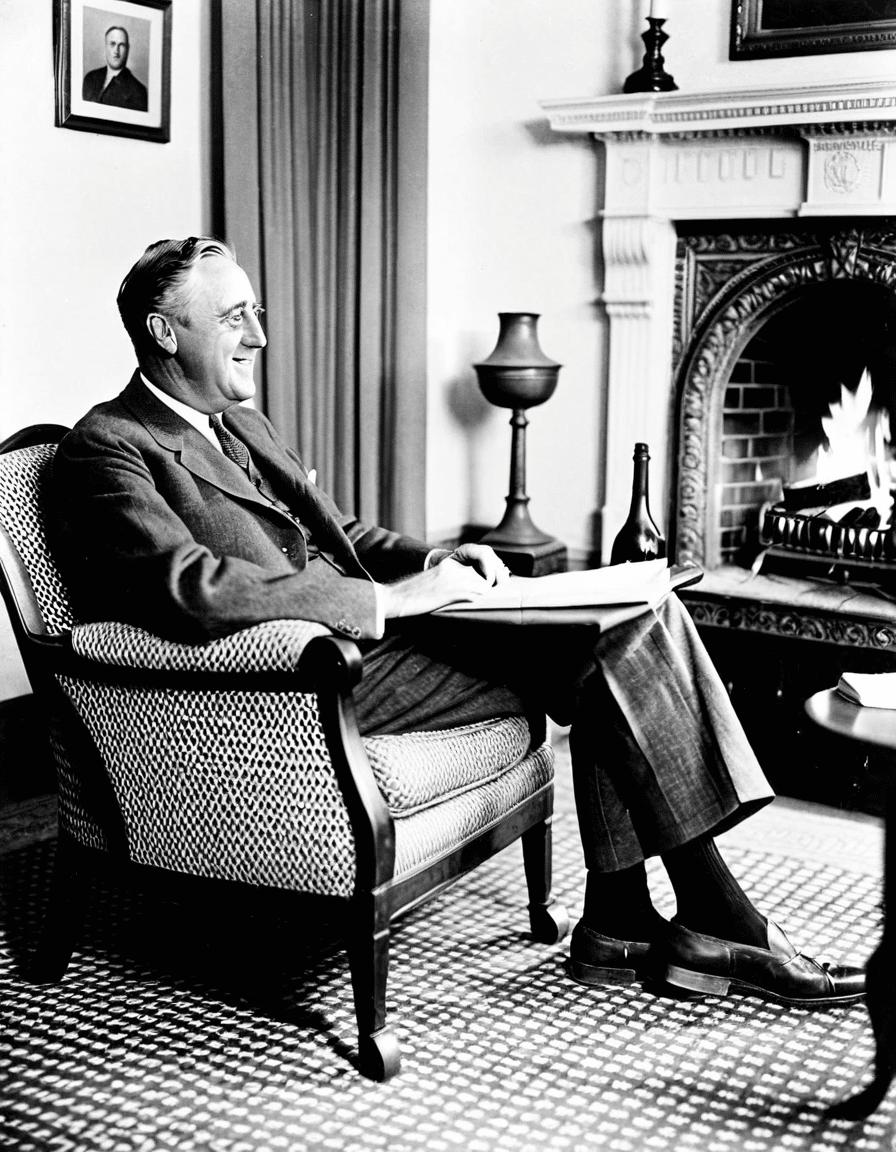
4. Civil Rights Progression: The Roosevelt Legacy
FDR’s record on civil rights may be a mixed bag, but it’s undeniable that he made pivotal progress. He broke through barriers by advocating for African American employment in government positions, and his wartime programs benefited minorities in ways that hadn’t been seen before.
His actions helped lay the groundwork for future civil rights advancements during the 1960s, particularly under leaders like Lyndon B. Johnson. FDR had the foresight to recognize that a nation’s strength lies in its diversity, and his advocacy began to shift the focus toward equality.
However, let’s be honest; Roosevelt’s response to civil rights issues was often seen as too cautious. While he took steps forward, the pace of change was slow and, unfortunately, often fell short of what was needed. Yet, these initial advancements opened doors to discussions on civil rights, leading to the impactful movements we recognize today.
5. Environmental Stewardship: The Conservation Programs
FDR was also an early champion of environmental conservation, which is increasingly important in today’s climate-conscious world. Through initiatives like the Civilian Conservation Corps (CCC), he employed thousands in projects that restored forests, built trails, and preserved parkland.
His commitment to conservation reflected a broader mindset that recognized the importance of safeguarding nature. Today, we can see echoes of his work in policies pushed by leaders like Teddy Roosevelt, who similarly prioritized wildlife conservation and national parks.
FDR’s environmental programs combined job creation with a personal responsibility towards nature that’s still relevant today. With climate change looming over us like a ticking time bomb, FDR’s blend of economic and environmental stewardship remains a keen reminder of what visionary leadership can achieve.
6. Healthcare Innovations: The Social Security Act
Among FDR’s lasting legacies is the Social Security Act of 1935. This monumental legislation created a safety net for the elderly and unemployed, cementing the government’s role in public health and welfare. By implementing this act, FDR laid the groundwork for subsequent healthcare policies and set a precedent for what an engaged government can achieve in safeguarding its citizens.
Fast forward to the Johnson administration, and we see echoes of FDR’s vision in initiatives like Medicare and Medicaid. Both programs draw from the foundation he built, still impacting millions of lives today.
FDR’s foresight in advocating for social safety nets reflects a compassionate approach that resonates now more than ever. As healthcare debates continue to swirl, his legacy serves as a crucial reference point for discussions about healthcare reform.
7. Economic Theory and Global Influence: Keynesian Economics
FDR’s acceptance of Keynesian economic principles during the Great Depression shifted the course of American economic theory. He embraced the idea of deficit spending to stimulate the economy during downturns, which challenged the traditional notion of balanced budgets.
His policies not only revitalized a beleaguered economy but also guided future leaders, including those in Eisenhower’s administration, to adopt similar approaches in times of recession. Today, debates surrounding these economic theories remain ever-relevant, as we sometimes find ourselves facing new financial emergencies.
Through FDR’s lens, we learn that the government can play a crucial role in economic stability. His argument for bold responses still shapes the discussions we have regarding fiscal policies and government interventions today.
The Legacy of Franklin D. Roosevelt in Uncertain Times
Franklin D. Roosevelt’s time in office was marked by large-scale actions that tackled immediate challenges while also transforming the government’s relationship with its citizens. From economic policy to civil rights advancements, the consequences of his bold initiatives continue to shape American life today.
In light of global crises such as pandemics, climate change, and economic upheaval, we find guidance in FDR’s legacy. His visionary leadership inspires a new generation of leaders to rise to the occasion amidst uncertainty.
Through his creative reforms, Franklin D. Roosevelt remains an enduring example of how a leader can navigate crises and effect profound change. And if there’s one lesson FDR imparts, it’s this: boldness in the face of adversity isn’t just a quality of good leadership; it’s essential for survival.
So, as we move forward, let’s take a page from FDR’s playbook. Who knows? Perhaps a dash of his audacity will lead us to brighter days ahead.
Franklin D. Roosevelt: A Bold Leader During Crisis
The Man Behind the Legacy
Franklin D. Roosevelt, or FDR as most folks call him, faced some of the toughest times in American history, from the Great Depression to World War II. Did you know he was the first sitting president to appear on television? His 1939 broadcast at the opening of the New York World’s Fair showcased his innovative spirit. It’s fascinating to think of how he embraced modern technology to reach the masses, much like how Sally D’Angelo has captivated audiences with her performances. In fact, FDR’s willingness to adapt can be seen as a precursor to how entertainment has evolved over the decades, including the engaging narratives found in The Sympathizer.
Roosevelt was also known for being relatable. He was often seen in a wheelchair due to polio, which he contracted at a young age. This challenge inspired him to empathize deeply with Americans dealing with their struggles. His famous Fireside Chats allowed him to connect directly with citizens, similar to how the Glee cast brought relatable stories to their fans week after week. FDR’s ability to communicate openly during a time of uncertainty helped build trust as he laid out his New Deal policies to counteract economic woes.
The Bold Decisions
Key decisions in FDR’s presidency altered the course of history. For example, when designing the Civilian Conservation Corps (CCC), he aimed to alleviate unemployment, aligning well with initiatives like the cheapest cities to live in the US, which offer affordable living as a solution to economic strife. Notably, he also made strides in social security, which continues to be a significant part of American life today.
Curiously, many aspects of FDR’s presidency have been portrayed in films and shows, echoing themes in horror movies like Wrong Turn. Just as those films take viewers on unexpected journeys through treacherous paths, FDR’s journey as president was filled with uncertainty yet led to groundbreaking changes. His legacy still influences leaders today, showing us how navigating crises can set the foundation for future progress—much like how cities evolve in Mexicali as they adapt to changing circumstances. Roosevelt truly demonstrated that leadership is about more than just managing a crisis; it’s about inspiring hope and resilience in a nation.
